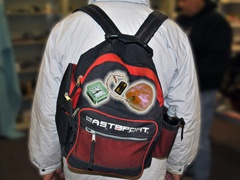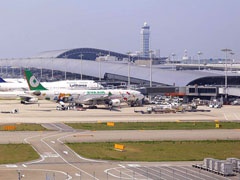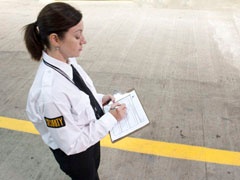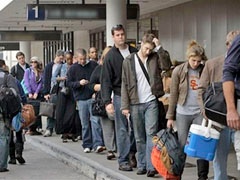One of the primary weapons of choice for terrorists and lone wolf attackers has been the Improvised Explosive Device, or IED. These dangerous, homemade devices are typically constructed from common household items making them rather inexpensive to build. Nevertheless, IEDs can pack a powerful punch and have been known to cause an extraordinary amount of damage and loss of life.
Consequently, security checkpoint personnel must always be on high alert for the IED threat. If allowed to pass through a checkpoint, the device will certainly be used with malicious intent. At a fundamental core, security personnel must gain a basic understanding of improvised explosive devices and how they are constructed in order to recognize when one is presented before them.
Read More
Topics:
Aviation Security,
General Security,
Cargo Security,
Ports & Borders,
Critical Infrastructure,
Security Threats,
Transportation
If it seems as though terrorism has been on the rise these past few years, it has. Terror attacks have spread to more countries than ever and innocent, private citizens are increasingly becoming targets. When terrorism strikes, it undeniably leaves a lasting impact on the nation and its people.
In the third edition of the Global Terrorism Index for 2015, the Institute for Economics and Peace (IEP) collected data from the Global Terrorism Database to determine key global trends and patterns in terrorism over the past 15 years, with an emphasis on 2014. Let’s take a look at these global terrorism trends, facts, and figures.
Read More
Topics:
Aviation Security,
Trends,
General Security,
Cargo Security,
Security Threats
The recent safety recall of the Samsung Galaxy Note7 smartphone is causing a stir within the aviation industry. Dozens of consumers have reported these devices catch fire while charging. These incidents have been attributed to faulty lithium ion batteries. As a result, many airlines and aviation organizations have banned their use aboard airplanes.
This restriction comes as no surprise since earlier this year, International Civil Aviation Organization (ICAO) put into effect new regulations concerning this dangerous good. The temporary aviation ban prohibits all cargo shipments of lithium ion batteries from flying on passenger aircrafts. The risk of an aircraft fire is too significant given that lithium batteries contain very high levels of energy and current in-flight suppression systems are not strong enough to put out these types of fires.
Read More
Topics:
Aviation Security,
Transportation,
Current Events
Whether you’ve realized it or not, X-ray security screeners exist everywhere. That’s because X-ray screening technology is present in so many industries. We can find X-ray screeners at airports, cargo facilities, courthouses, schools, correctional facilities, immigration agencies, special events, and more.
These X-ray operators work endlessly to protect the surrounding people and infrastructures from harm by inspecting belongings, packages, and goods flowing through. They are trained to detect contraband, weapons, explosive devices, and drugs. Every day, X-ray security screeners put themselves in potentially dangerous situations and risk their lives to protect us.
Read More
Topics:
Security Training,
Aviation Security,
General Security,
Cargo Security,
Ports & Borders,
Critical Infrastructure,
Transportation
Aviation is an extraordinary industry powered by the cooperation of countless companies and people. Many of these same people aspire to keep air transport safe and running smoothly.
Unfortunately though, aviation has always been a target for those wanting to bring attention to their own cause by carrying out harm to the industry. It’s only a matter of time before the next attack or attempt occurs. That’s why the aviation industry must always be vigilant of the following threats.
Read More
Topics:
Aviation Security,
Trends,
Security Threats,
Transportation
For those overseeing security training compliance of employees, there are a few things you must know at any given time. Don’t be caught off guard when an auditor inspects your facility and training records.
Make sure you understand these five key pieces of information related to your compliance training program. It will prepare you when a compliance audit is conducted.
Read More
Topics:
Audit Preparation & Compliance,
Aviation Security,
Cargo Security
Security screener shortages and increased passenger volume at the airport - doesn’t make for a good combination, does it. Unfortunately, that’s exactly what the US Transportation Security Administration (TSA) is facing at the moment.
The recovering economy and low price of airfare has boosted the volume of passengers flowing through airports. This uptick is wreaking havoc on the busiest US airports including Atlanta, Chicago, Dallas, and New York since passengers are unable to get through security fast enough. The strain is being felt on everyone including passengers, airports, and airlines.
Read More
Topics:
Aviation Security,
Transportation,
Current Events
Most airports have numerous screening checkpoints situated in different areas of its facility. Passenger, cabin baggage, hold baggage, cargo, and non-passenger screening are typical checkpoints.
These airport checkpoints screen and process people, belongings, and cargo nonstop to prevent the entry of prohibited and dangerous items. Let’s briefly run through the different types of security screening checkpoints typically found at airports.
Read More
Topics:
Aviation Security,
Cargo Security,
Transportation
For security screeners, being able to identify threats and prohibited items under X-ray is an important responsibility. To aid in this task, some may agree that learning how to identify everyday objects is almost equally important since most items inspected are innocent. Think about it. How beneficial would it be for security screeners to recognize and clear innocent everyday items quickly and efficiently? A rapid check over of the X-ray image is all it would take for a skilled screener. That’s why practice recognizing everyday objects alongside threats and prohibited articles is encouraged.
Read More
Topics:
Security Training,
Aviation Security,
Training & Development,
General Security,
Cargo Security,
Ports & Borders,
Critical Infrastructure,
Transportation
Brussels was rocked by terrorism this week. On the morning of Tuesday, March 22nd, two explosions hit inside Zaventem international airport and a third just a few miles away at Maelbeek metro station. The attacks have tragically left at least 30 people dead and hundreds wounded. These attacks come days after Paris terror suspect Salah Abdeslam was captured in the suburb of Molenbeek by Belgian authorities. It is believed the two incidents are related.
Read More
Topics:
Aviation Security,
Critical Infrastructure,
Security Threats,
Transportation,
Current Events










